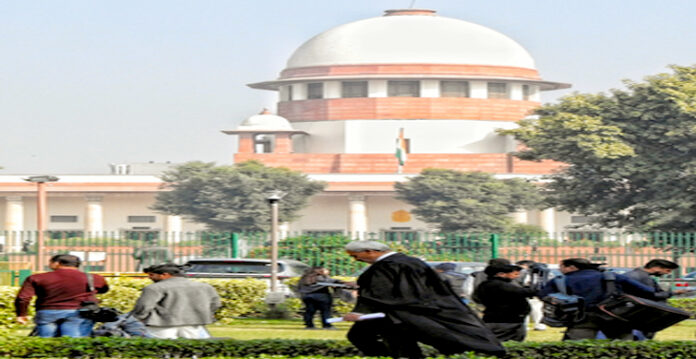The Supreme Court of India has ruled that the use of terms like “miyan-tiyan” and “Pakistani” does not amount to hurting religious sentiments under Section 298 of the Indian Penal Code (IPC), though the remarks were deemed inappropriate.
A bench comprising Justices BV Nagarathna and Satish Chandra Sharma issued this ruling while hearing a criminal case filed by an Urdu translator and acting clerk under the Right to Information (RTI) Act in Jharkhand. The court discharged the accused, overturning an earlier Jharkhand High Court order.
In its February 11 order, the Supreme Court stated:
“The appellant is accused of hurting the religious feelings of the informant by calling him ‘miyan-tiyan’ and ‘Pakistani.’ While the statements are in poor taste, they do not amount to hurting religious sentiments. Therefore, the appellant is discharged under Section 298 IPC.”
Also Read: Muslim Organisations Appeal to Supreme Court to Prevent Tampering with Religious Sites
Section 298 IPC deals with deliberate words or gestures intended to wound religious feelings, but the court found no such intent in this case.
The case originated when Hari Nandan Singh, the accused, sought information under the RTI Act from the additional collector-cum-first appellate authority, Bokaro. The requested information was sent to him via registered post, but he later appealed, alleging document manipulation.
The appellate authority assigned an Urdu translator to personally deliver the information. On November 18, 2020, the translator, accompanied by a messenger, visited Singh’s residence. Initially reluctant, Singh ultimately accepted the documents but allegedly used offensive language against the informant and made remarks related to his faith.
This led to an FIR against Singh, and the trial court framed charges under:
- Section 298 (hurting religious sentiments)
- Section 353 (assault on a public servant)
- Section 504 (intentional insult to provoke a breach of peace)
Singh sought to quash the charges, but the Jharkhand High Court dismissed his plea.
Upon reviewing the case, the Supreme Court observed that apart from Section 353, no evidence suggested Singh’s remarks provoked a breach of peace. The court ruled:
“We set aside the High Court’s order that upheld the trial court’s decision. Consequently, we allow the appellant’s plea and discharge him from all three offences.”
This ruling highlights the difference between offensive speech and criminal intent under Indian law, reaffirming that not all distasteful remarks amount to an IPC offence.
(This story is sourced from a third-party syndicated feed. Raavi Media takes no responsibility or liability of any nature. Raavi Media management/ythisnews.com can alter or delete the content without notice for any reason.)


